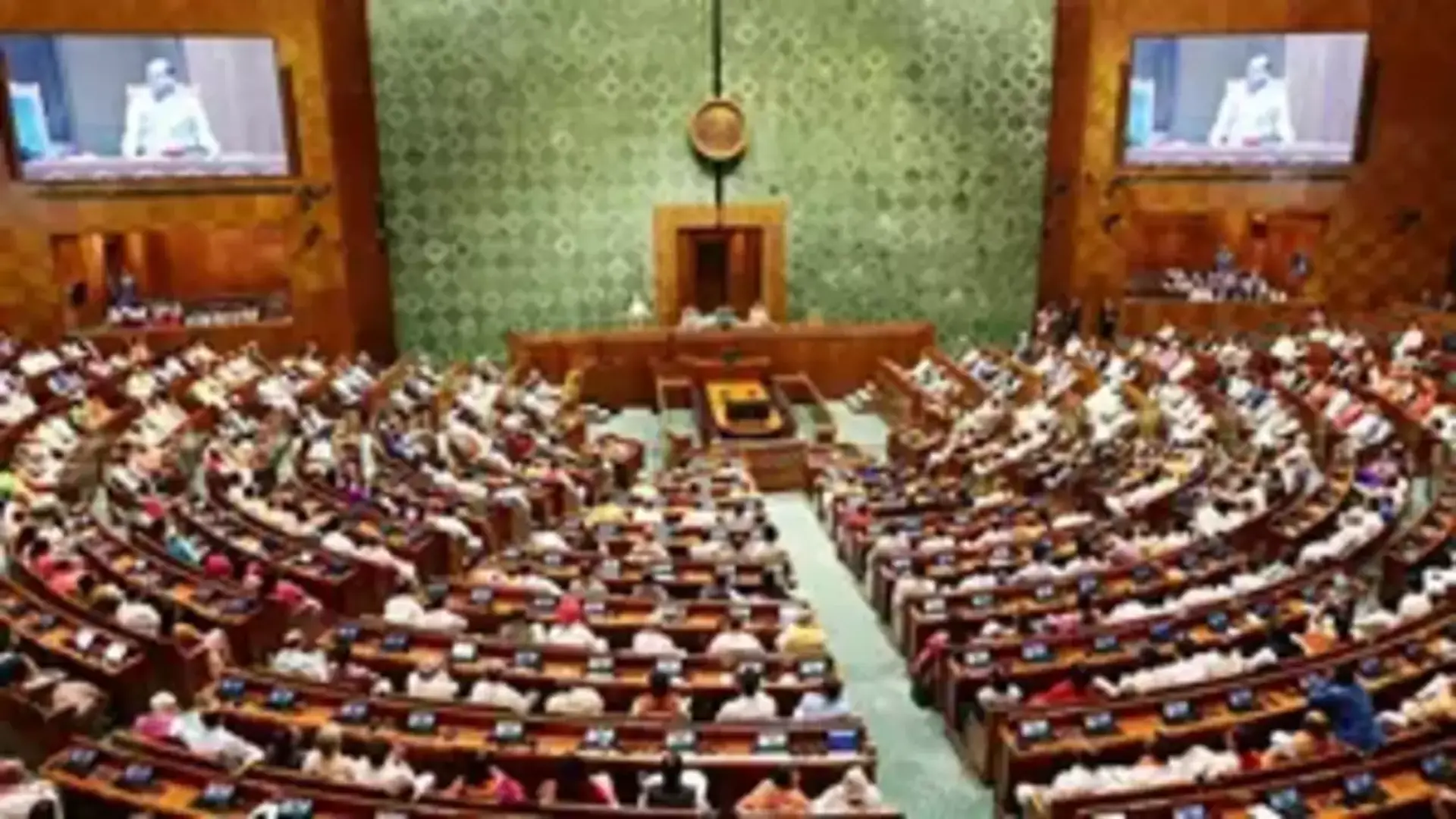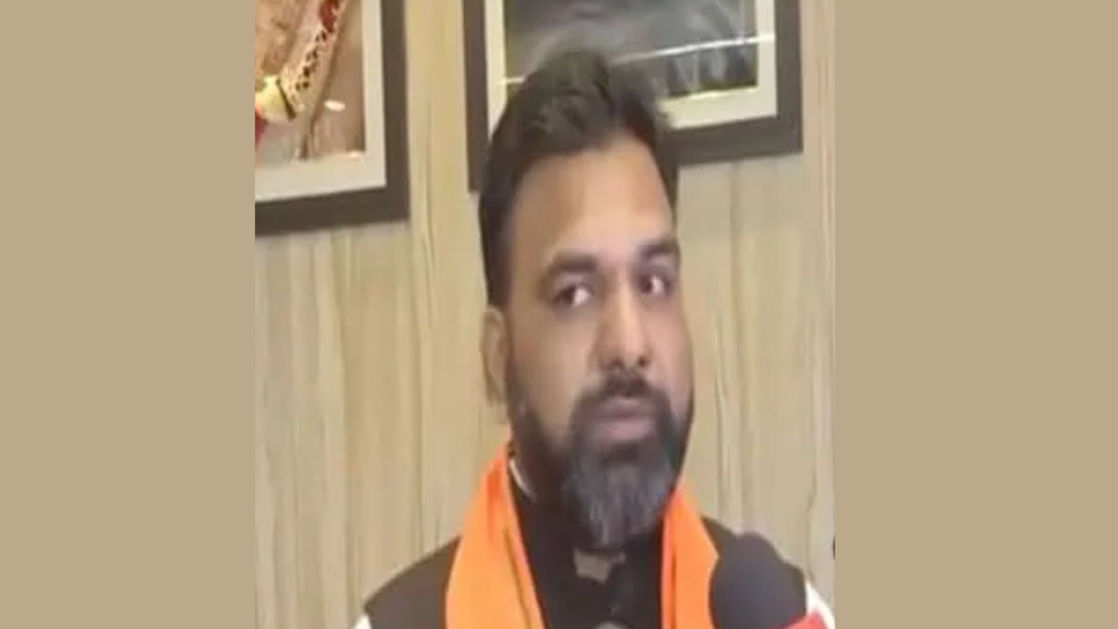
It is quite noteworthy that the Madras High Court has in a most learned, laudable, landmark and latest judgment titled V Narayanasamy Vs Vanchikodi in C.R.P. No. 2860 of 2021 that was pronounced as recently as on April 19, 2023 has minced just no words in holding explicitly, elegantly, eloquently and effectively that one party acting vigilantly cannot be denied his valuable right due to negligence of other. While observing that there must be ‘sufficient cause’ in the application to condone the delay, the Madras High Court has held that though the word ‘sufficient cause’ mentioned in Section 5 of the Limitation Act is normally approached liberally, however, there must be acceptable and palpable reason in the petition to give such liberal approach. It must be mentioned that the Single Judge Bench of Hon’ble Mrs Justice V Bhavanai Subbaroyan had a valid point in reiterating that, “If a party has been thoroughly negligent in implementing its rights and remedies, it will be equally unfair to deprive the other party of a valuable right that has accrued to it in law as a result of his acting vigilantly”. We see in this leading case that the Bench observed that the petitioner has not shown any sufficient and valid reason for the delay of 1835 days in preferring the petition, as the reasons assigned by the petitioner that he was unable to follow the suit due to the pressure of his professional work and due to the pendency of other civil and criminal proceedings, lacks bona fide. Accordingly, the Madras High Court dismissed the revision petition. It must be mentioned here that the Civil Revision Petition has been filed under Section 115 of Civil Procedure Code to set aside the fair and decretal order of dismissal passed by the learned Principal District Judge, Chengalpattu dated 02.08.2021 made in I.A.No.469 of 2018 in O.S.S.R.No.721 of 2013.
At the very outset, this brief, brilliant, bold and balanced judgment authored by the Single Judge Bench of Hon’ble Mrs Justice V Bhavanai Subbaroyan sets the ball in motion by first and foremost putting forth in para 1 that, “The present Revision has been filed to set aside the fair and decretal order of dismissal passed by the learned Principal District Judge, Chengalpattu dated 02.08.2021 made in I.A.No.469 of 2018 in O.S.S.R.No.721 of 2013.”
To put things in perspective, the Bench then envisages in para 2 that, “The brief facts of the case are as follows:-
The petitioner, who is the plaintiff in O.S.SR.No.721 of 2013 has preferred I.A.No.469 of 2018 to condone the delay of 1835 days in representing the plaint in the original suit. The said suit was filed to declare the title of the petitioner – plaintiff in respect of the Schedule ‘B’ petition mentioned property and for a relief of permanent injunction. The said plaint was originally presented before the court below on 20.02.2013 and the same was returned by the Registry for rectifying certain defects by granting time of one month for representation, whereas, the petitioner/plaintiff failed to represent the same within the said time. The court below dismissed the petition on the ground that no prima facie case was made out and that there is no sufficient reason let in on the side of the petitioner to condone the delay. As against the same, the petitioner is before this Court.”
As we see, the Bench then observes in para 7 that, “On going through the documents placed on record, it is seen that the suit, viz., O.S.SR.No.721 of 2013 was filed in the year 2013 and representation of the plaint by way of I.A.No.469 of 2018 was filed only in the year 2018, i.e., after a lapse of 5 years. In the said application, the petitioner has placed the entire blame upon his previous counsel and the petitioner/plaintiff has stepped into the witness box and adduced evidence as P.W.1. Moreover, it is also seen that the respondent/defendant has earlier filed O.S.No.57 of 2008 on the file of District Munsif Court, Tambaram and the petitioner has contested the case through the same previous counsel and the said fact has also been admitted by the petitioner himself. While so, there is no explanation rendered on the side the petitioner as to why he was not vigilant in contesting the present suit.”
Frankly speaking, the Bench observes in para 8 that, “It is to be noted that merely stating that the erst while counsel did not inform the petitioner/plaintiff with regard to proceedings of the present suit, that too he was busy in attending the proceedings in connection with the earlier suit, cannot be a sufficient reason for condoning the delay in representing the plaint in the suit. The reason stated is not a sufficient reason, i.e., sufficient cause shown for setting aside the dismissal as the delay is 1835 days. At the same time, it is no doubt true that the certain duties would cast upon the counsels also to make their earnest effort in communicating the status of the court proceedings to their clients. But, still, as far as the present case on hand is concerned, the court has permitted the parties to adduce evidence.”
Most significantly, the Bench notes in para 9 that, “A perusal of each and every Judgments referred to by the learned counsel for the respondents stated supra, it is clear that, ‘if a party has been thoroughly negligent in implementing its rights and remedies, it will be equally unfair to deprive the other party of a valuable right that has accrued to it in law as a result of his acting vigilantly’. Further, ‘if sufficient cause is not proved nothing further has to be done; the application for condoning delay has to be dismissed on that ground alone.’ Also, ‘it is well settled that there must be ‘sufficient cause’ in the application to condone the delay, satisfactory reason has to be given. Though the word ‘sufficient cause’ mentioned in Section 5 of the Limitation Act is normally approached liberally, to give such liberal approach there must be acceptable and palpable reason in the petition’.”
While citing the relevant case law, the Bench hastens to add in para 10 that, “At this juncture, it is worthwhile to recall and recollect the Judgment of the Hon’ble Supreme Court H.Dohil Constructions Company Private Limited V. Nahar Exports Limited and Another reported in (2015) 1 Supreme Court Cases at Page 680 wherein at Special Page 690, Paragraph No.20 and at Special Page 692, Paragraph No.24, it is observed as under:
20. In the case on hand, the delay in refiling was of 1727 days. As rightly pointed out by the learned Senior Counsel for the appellant(s), the respondents paid the scrutiny charges on 11.04.2008 as disclosed in Receipt No.73 issued by the High Court of that date. When the appeal papers were filed on 06.09.2007 and the scrutiny charges were paid on 11-04-2008, it was quite apparent that the processing of papers of the appeals for its registration did commence in the month of April 2008. Thereafter, if rectification of whatever defects were not carried out by the respondents or its counsel between April 2008 and May 2012, it is the bounden duty of the respondents to have satisfactorily explained such a long delay in refiling. When we refer to the applications filed on behalf of the appellant(s), we find that there was no convincing explanation as to how the respondents were disabled from rectifying the defects pointed out by the Registry and refiling the appeal papers within time. The respondents only attempted to throw the blame on the previous counsel to whom appeal papers were entrusted for filing in September 2007. As pointed out by the learned Senior Counsel for the appellant(s), there were no details as to whom it was entrusted and what were the steps taken to ensure that the appeals filed were duly registered for pursuing further remedy as against the said judgment of the trial court. As a matter of fact the appeal papers were filed without payment of any court fee. This only affirms the stand of the appellant(s) that there was no bonafide in the respondents’ claim and that they were seriously interested in challenging the Judgment of the trial court as against the non-grant of relief of specific performance. We also fail to see as to who Respondent 1, which is a limited company involved in the business of exports, which would certainly have its own legal department, can plead that after entrusting the papers to some counsel whose name was not disclosed even before this Court did not even bother to take any follow-up to ensure that its appeals were duly registered in the High Court. In this context the maxim vigilantibus non dormientibus jura subveniunt (law assists those who are vigilant and not those who sleep over their rights) aptly applies to the case on hand. The respondents simply by throwing the blame on the previous counsel whose identity was not disclosed claimed that irrespective of the enormous delay of 1727 days in refiling the same should be condoned as a matter of course as there was only 9 days’ delay involved in filing the appeals.
24. When we apply those principles of Bhattacharjee Case to the case on hand, it has to be stated that the failure of the respondents in not showing due diligence in filing of the appeals and the enormous time taken in the refiling can only be construed, in the absence of any valid explanation, as gross negligence and lacks in bona fides as displayed on the part of the respondents. Further, when the respondents have not come forward with proper details as regards the date when the papers were returned for refiling, the non-furnishing of satisfactory reasons for not refiling of papers in time and the failure to pay the Court fee at the time of the filing of appeal papers on 06.09.2007, the reasons which prevented the respondents from not paying the court fee along with the appeal papers and the failure to furnish the details as to who was their counsel who was previously entrusted with the filing of the appeals cumulatively considered, disclose that there was total lack of bona-fides in its approach. It also required to be stated that in the case on hand, not refiling the appeal papers within the time prescribed and by allowing the delay to the extent of nearly 1727 days, definitely calls for a stringent scrutiny and cannot be accepted as having been explained without proper reasons. As has been laid down by this Court, courts are required to weigh the scale of balance of justice in respect of both the parties and the same principal cannot be given a go-by under the guise of liberal approach even if it pertains to refiling. The filing of an application for condoning the delay of 1727 days in the matter of refiling without disclosing reasons, much less satisfactory reasons only results in the respondents not deserving any indulgence by the court in the matter of condonation of delay. The respondents had filed the suit for specific performance based on the agreement was correct but exercised its discretion not to grant the relief for specific performance but grant only a payment of damages and the respondents were really keen to get the decree for specific performance by filing the appeals, they should have shown utmost diligence and come forward with justifiable reasons when an enormous delay of five years was involved in getting its appeals registered.”
Finally, the Bench concludes by holding in para 11 that, “In so far as the present case is concerned, the petitioner has not shown any sufficient and valid reason for the delay of 1835 days in preferring the petition. The reasons assigned by the petitioner that due to the pressure of his professional work and due to the pendency of other civil and criminal proceedings, he was unable to follow the suit and since, the petitioner was full confident in his previous counsel, he has not suspected the integrity of his previous counsel, lacks bonafide, in view of evidence of P.W.1/petitioner, wherein he had admitted that in the suit filed by the respondent, O.S.No.57 of 2008, the petitioner has contested the case through the said previous counsel and hence the same is unacceptable by this Court. Suffice it for this Court to state that the reasons ascribed by the Petitioner are not based on justifiable reasons and in view of the Judgments of the Hon’ble Supreme Court mentioned supra, this Court is unable to exercise its judicial discretion in favour of the petitioner.
Please read concluding on
thedailyguardian.com















